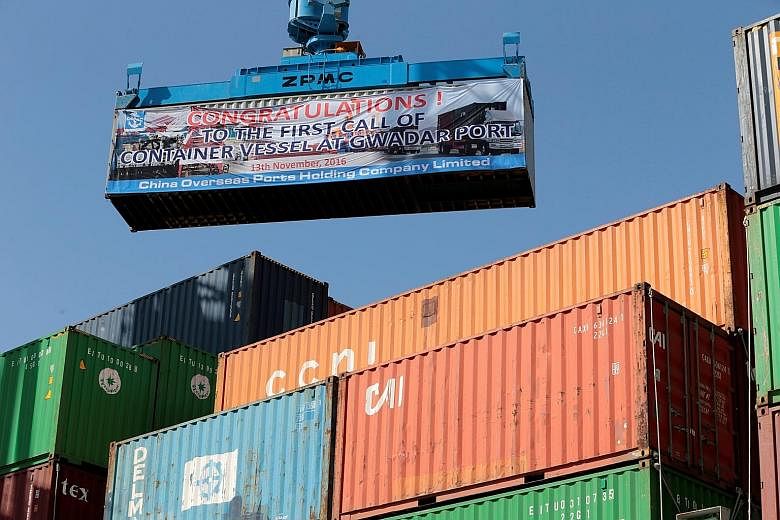WASHINGTON • President Donald Trump, seeking to counter China's growing geopolitical influence, is embracing a major expansion of foreign aid that will bankroll infrastructure projects in Africa, Asia and the Americas - throwing his support behind an initiative he once sought to scuttle.
With little fanfare, Mr Trump signed a Bill a little over a week ago that created a new foreign aid agency - the US International Development Finance Corp - and gave it authority to provide US$60 billion (S$82.6 billion) in loans, loan guarantees and insurance to companies willing to do business in developing countries.
The move was a significant reversal for Mr Trump, who has harshly criticised foreign aid from the opening moments of his presidential campaign in 2015.
Since becoming president, Mr Trump has proposed slashing US$3 billion in overseas assistance, backed eliminating funding for the Overseas Private Investment Corp and taken steps to gut the US Agency for International Development, the State Department agency that dispenses US$22.7 billion a year in grants around the world.
The President's shift has less to do with a sudden embrace of foreign aid than a desire to block Beijing's plan for economic, technological and political dominance.
China has spent nearly five years bankrolling a plan to gain greater global influence by financing big projects across Asia, Eastern Europe and Africa.
Now, Mr Trump wants to fight fire with fire.
"I have changed, and I think he has changed, and it is all about China," said Republican Representative Ted Yoho, who helped sell the plan to other conservative Republicans in the House Freedom Caucus, which has historically opposed foreign aid programmes.
"My whole impetus in running for Congress in the first place was to get rid of foreign aid," said Mr Yoho. "But if we can reformulate and modernise it, yeah, I have no problem with that. There are people who want to do this for humanitarian aid, fine. There are people like me who want to do this for national security... fine."
The effort is part of a sweeping attempt by the Trump administration to prevent China's economic and political dominance.
The new bipartisan push to increase foreign aid began under the Obama administration, but it was rebranded as a means of competing with China's Belt and Road Initiative, which aims to distribute US$1 trillion in construction aid and investments to more than 100 countries.
China's biggest investments are targeted at countries such as Pakistan and Nigeria, with a goal of expanding Beijing's geopolitical power and gaining access to natural resources like minerals and oil.
But it is also spending billions of dollars on projects in smaller countries that are less likely to turn a monetary or political profit. Last month, President Xi Jinping said China would provide US$60 billion in financial support to Africa.
The investments have raised concerns that poor and emerging nations such as Djibouti and Sri Lanka could be increasingly beholden to China, which can seize local assets if countries default on loans.
"The whole point of China's activity is building things no one else wanted to build - rail lines between African countries that hate each other, roads in bad terrain, power plants that are never going to make any money," said Mr Derek Scissors, a resident scholar at the American Enterprise Institute.
"If a country can't pay, they will take assets they want," he added. "But they aren't setting a debt trap. This is about expanding their reach and exercising passive power."
A bigger question is whether the US initiative will do anything to reduce China's global influence.
"I am pretty sceptical," Mr Scissors said. "The whole concept is that we give more money to big players who make investments in places where they don't lose money. We have finessed the public relations problem. But we aren't really competing with the Chinese."
NYTIMES

